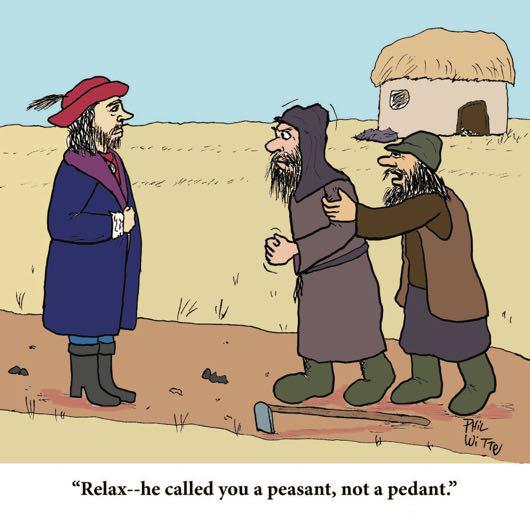
Research shows that most people think of themselves as nice people (see for example, 'People think they're nicer than they actually are', Rachel Hosie, Independent, 13.3.17). What they seem to mean b by this is that they do little things to help people, such as give up a seat on a train. This is what many people probably think being a 'good person' involves - doing good things. However, the same people admit that very often they do not help if it involves a more significant sacrifice. So, if they think of themselves as good, and they think of being good as doing good things, they realise that they are not as good as they could be. They are quite good but they could be a lot better.
Peter Singer has argued that if we see being good as doing good things, and if we really want to be good, then we have a moral obligation to help others up to the point where if we help them any more we would make ourselves worse off than they are (see for example, 'Famine, Affluence and Morality', 1972). Singer admit that not many people would live like this, and in later writings he has played this obligation down, suggesting that people who want to be good should only give up to 25% of their wealth to those less well off. But it's clear that, deep down, he thinks the more demanding principle holds as a moral requirement.
Loveless Goodness
Singer's view is based on his Utilitarian approach to morality. In Utilitarianism actions are judged morally good in so far as they promote the greatest happiness of the greatest number of people. Therefore the best action is the one that promotes the best consequences in this sense. Singer at his most demanding exhorts people to do the most good they can do.
This story is from the August/September 2022 edition of Philosophy Now.
Start your 7-day Magzter GOLD free trial to access thousands of curated premium stories, and 9,000+ magazines and newspapers.
Already a subscriber ? Sign In
This story is from the August/September 2022 edition of Philosophy Now.
Start your 7-day Magzter GOLD free trial to access thousands of curated premium stories, and 9,000+ magazines and newspapers.
Already a subscriber? Sign In

Metaphors & Creativity
Ignacio Gonzalez-Martinez has a flash of inspiration about the role metaphors play in creative thought.

Medieval Islam & the Nature of God
Musa Mumtaz meditates on two maverick medieval Muslim metaphysicians.

Robert Stern
talks with AmirAli Maleki about philosophy in general, and Kant and Hegel in particular.

Volney (1757-1820)
John P. Irish travels the path of a revolutionary mind.

IT'S A WONDERFUL LIFE
Becky Lee Meadows considers questions of guilt, innocence, and despair in this classic Christmas movie.

"I refute it thus"
Raymond Tallis kicks immaterialism into touch.

Cave Girl Principles
Larry Chan takes us back to the dawn of thought.

A God of Limited Power
Philip Goff grasps hold of the problem of evil and comes up with a novel solution.

A Critique of Pure Atheism
Andrew Likoudis questions the basis of some popular atheist arguments.

Exploring Atheism
Amrit Pathak gives us a run-down of the foundations of modern atheism.